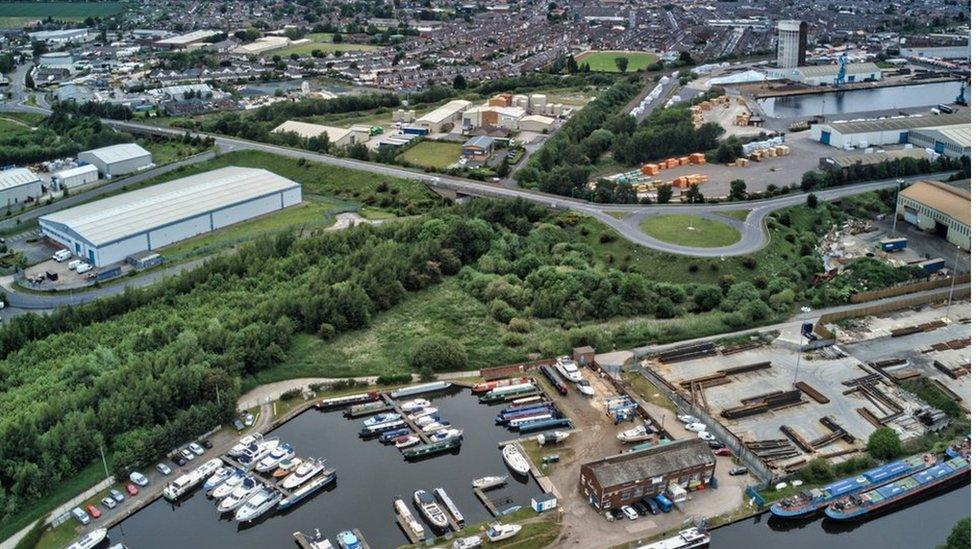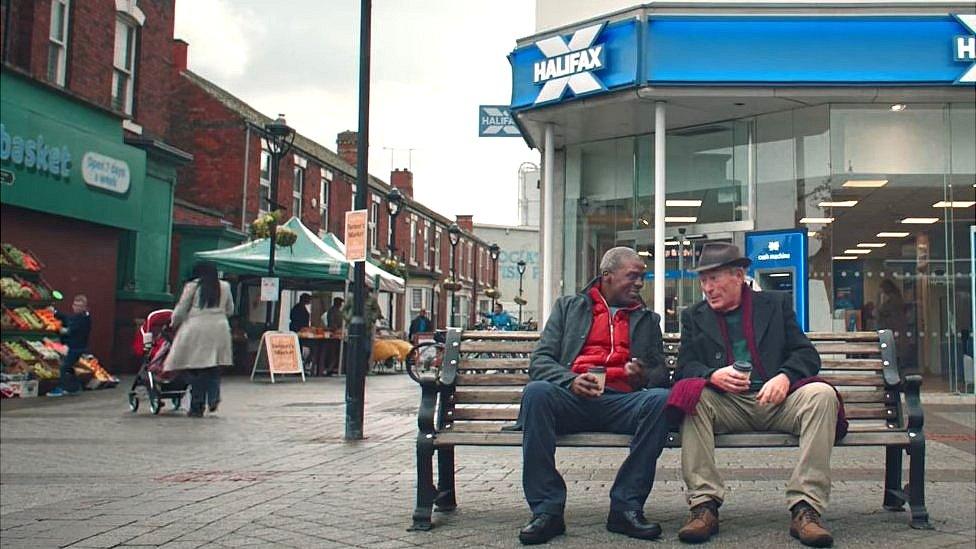Goole historian debunks town's open sewer name origin
- Published

Goole, despite being about 45 miles (70 km) from the North Sea, is an inland port
A historian from Goole hopes to improve the town's image by challenging the commonly held idea that its name means "open sewer".
Even Goole Town Council currently uses that description of the origins of the name on its website.
But Florence Scott, who lives in the East Yorkshire town, said the idea was wrong and believed it was damaging to the way Goole was perceived.
Chris Bailey, Goole's mayor, said: "It would be nice to change the meaning."
Mr Bailey, a publican, said the story of the name's meaning was "the butt of a lot of jokes".
It could "harm the perspective of people unfamiliar with the town", he said.
Florence, 27, a University of Leeds graduate who is studying for a PhD, said they believed the derivation of Goole was actually "storehouse on a water channel" rather than sewer-related.
Goole lies at the meeting of the Ouse and Don rivers.
"This name makes perfect sense given that Goole is a port that lies on a river confluence", they said.
Allow X content?
This article contains content provided by X. We ask for your permission before anything is loaded, as they may be using cookies and other technologies. You may want to read X’s cookie policy, external and privacy policy, external before accepting. To view this content choose ‘accept and continue’.

They have set out their argument in full here, external.
Florence added: "I can't find the origin of the sewer rumour. It's a mystery."
The first use of what Florence believed was the false description as "open sewer" was found in a Daily Mirror article from 1999.
Florence said they were also taught the false story at school in the town.
"There's no reason for that myth to be perpetuated. I'd like to see the story eradicated", they said.

Goole''s mayor says the town goes "under the radar" but has a port with good motorway and rail links
Mr Bailey said he agreed with Florence and hoped to bring up the issue at a council meeting later this week.
Florence said features written about the town often used the myth of the name's origin to link Goole to unfavourable features of the town.
"The real meaning shows that back in the 13th Century, Goole was fulfilling a similar role to what it does now. That's even better than the false etymology.
"It is definitely somewhere that has a lot of history", they added.

Follow BBC East Yorkshire and Lincolnshire on Facebook, external, Twitter, external, and Instagram, external. Send your story ideas to yorkslincs.news@bbc.co.uk, external.
Related topics
- Published15 February 2022
